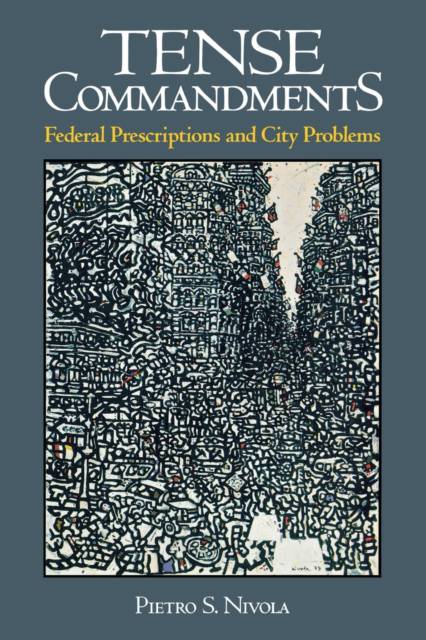
- Afhalen na 1 uur in een winkel met voorraad
- Gratis thuislevering in België vanaf € 30
- Ruim aanbod met 7 miljoen producten
- Afhalen na 1 uur in een winkel met voorraad
- Gratis thuislevering in België vanaf € 30
- Ruim aanbod met 7 miljoen producten
Zoeken
€ 44,45
+ 88 punten
Uitvoering
Omschrijving
During the past decade, dozens of large cities lost population as jobs and people kept moving to the suburbs. Despite widespread urban revitalization and renewal, one fact remains unmistakable: when choosing where to live and work, Americans prefer the suburbs to the cities. Many underlying causes of the urban predicament are familiar: disproportionate poverty, stiff city tax rates, and certain unsatisfactory municipal services (most notably, public schools). Less recognized is the distinct possibility that sometimes the regulatory policies of the federal government--the rules and rulings imposed by its judges, bureaucrats, and lawmakers--further disadvantage the cities, ultimately burdening their ability to attract residents and businesses. In Tense Commandments, Pietro S. Nivola encourages renewed reflection on the suitable balance between national and local domains. He examines an array of directive or supervisory methods by which federal policymakers narrow local autonomy and complicate the work urban governments are supposed to do. Urban taxpayers finance many costly projects that are prescribed by federal law. A handful of national rules bore down on local governments before 1965. Today these governments labor under hundreds of so-called unfunded mandates. Federal aid to large cities has lagged behind a profusion of mandated expenditures, at times straining municipal budgets. Apart from their fiscal impacts, Nivola argues, various federal prescriptions impinge on local administration of routine services, tying the hands of managers and complicating city improvements. Nivola includes case studies of six cities: Baltimore, Philadelphia, New York, Chicago, San Francisco, and Los Angeles. He describes the ""politics of paternalism,"" the political pressures that federal regulations place on governance. Then he offers comparisons with various political systems abroad, including Germany, the U.K., France, and Italy. As the nation and its cities brace f
Specificaties
Betrokkenen
- Auteur(s):
- Uitgeverij:
Inhoud
- Aantal bladzijden:
- 234
- Taal:
- Engels
Eigenschappen
- Productcode (EAN):
- 9780815760948
- Verschijningsdatum:
- 21/08/2002
- Uitvoering:
- Paperback
- Formaat:
- Trade paperback (VS)
- Afmetingen:
- 166 mm x 232 mm
- Gewicht:
- 326 g

Alleen bij Standaard Boekhandel
+ 88 punten op je klantenkaart van Standaard Boekhandel
Beoordelingen
We publiceren alleen reviews die voldoen aan de voorwaarden voor reviews. Bekijk onze voorwaarden voor reviews.







